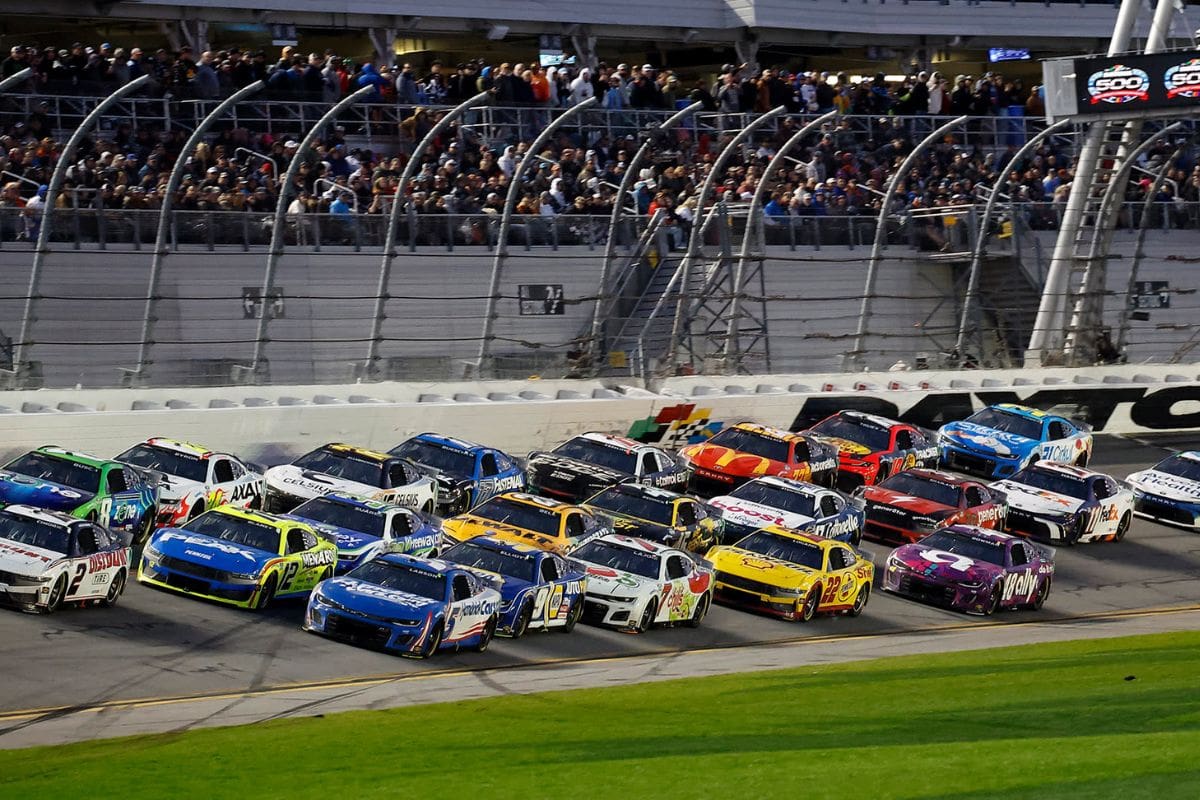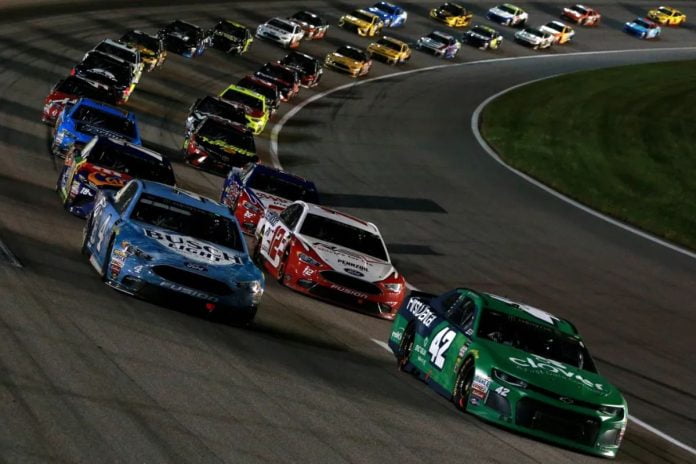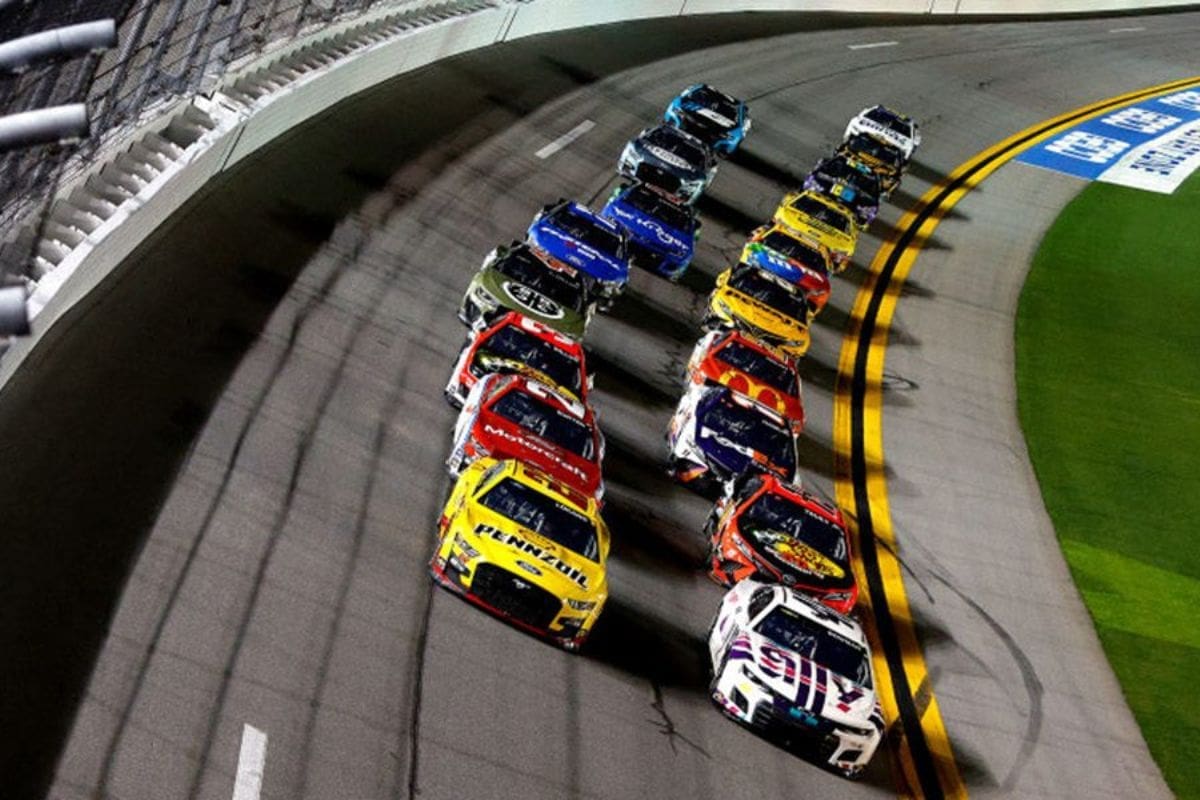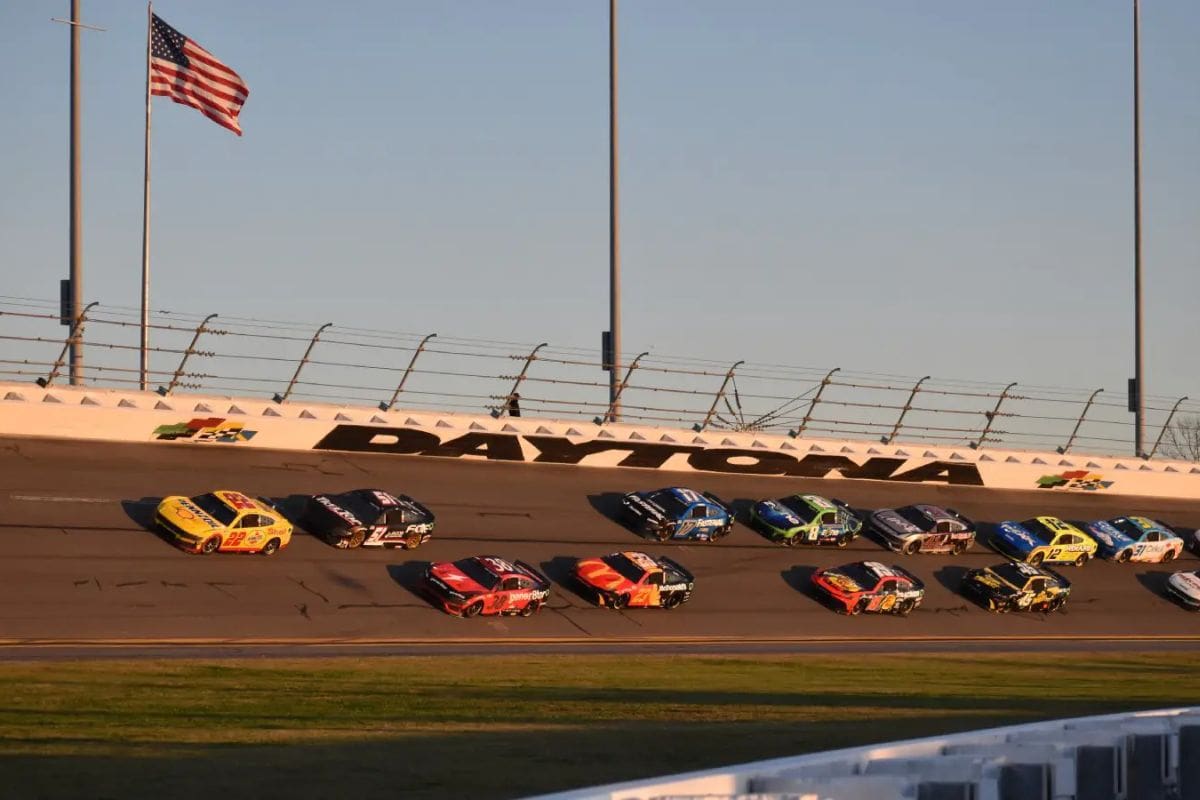Daytona 500 Tradition Threatened: The recent proposal by the NFL to extend the Super Bowl festivities into President’s Day weekend poses a direct challenge to the longstanding tradition of the Daytona 500, typically held the same weekend. This potential overlap could dilute the audience and diminish the cultural and economic impact of NASCAR’s premier event. Both entities command significant national attention, and the clash might force NASCAR to reconsider its scheduling to avoid a head-to-head competition.
Key Takeaways
- NFL’s proposal to extend Super Bowl weekend could overlap with the Daytona 500, risking NASCAR’s viewership and revenue.
- The Daytona 500 traditionally occurs on President’s Day weekend, directly clashing with the proposed new Super Bowl schedule.
- Potential scheduling conflict may force fans to choose between watching the Super Bowl and the Daytona 500, splitting viewer attention.
- NASCAR may need to explore rescheduling or strategic partnerships to avoid direct competition with the Super Bowl.
- The clash highlights the need for better coordination between major sports leagues to optimize viewer engagement and maintain traditions.
NFL’s Super Bowl Plans Threaten Daytona 500 Tradition
The National Football League’s decision to schedule the Super Bowl on the same weekend as the Daytona 500 poses a significant threat to the longstanding tradition of NASCAR’s iconic race. This scheduling conflict marks a crucial moment for both sports, as they traditionally capture vast domestic and international audiences. This overlap is likely to split viewership, potentially diluting broadcast ratings and advertising revenues for both events.
Analytically, the Super Bowl and the Daytona 500 are not merely sporting events but cultural phenomena that draw millions of viewers and generate substantial economic impact. The Super Bowl, perhaps the bigger draw in terms of global viewership, may overshadow NASCAR’s premier event, which has always enjoyed the spotlight of an exclusive President’s Day weekend. This clash could force loyal fans to choose between two beloved sports spectacles, thereby fracturing audience demographics and possibly diminishing the traditional celebratory atmosphere surrounding the Daytona 500.
Moreover, the logistical challenges for broadcasters, advertisers, and sponsors are significant. Networks will face decisions about channel prioritization, which could lead to less favorable coverage for NASCAR. Advertisers might also reconsider their spending strategies, potentially favoring the NFL over NASCAR, given the broader demographic appeal of football.

Goodell’s Proposal: Super Bowl Shift to President’s Day Weekend
NFL Commissioner Roger Goodell’s recent proposal to shift the Super Bowl to President’s Day weekend could greatly disrupt the traditional scheduling of the Daytona 500. This strategic move is poised to reconfigure one of the biggest weekends in U.S. sports, potentially reshaping broadcast dynamics and audience engagement across major sports leagues. By positioning the Super Bowl on a long weekend, Goodell aims to optimize viewer participation and commercial revenue, leveraging the additional day off for many Americans.
#NASCAR … 48 of the last 54 years, the Daytona 500 has been held on Presidents Day weekend. NFL Commissioner Roger Goodell is interested in moving the Super Bowl to that weekend. The Daytona 500 may have to run on a different date in the future.https://t.co/ruwBW3gHza
— Dustin Long (@dustinlong) April 26, 2024
- Viewer Engagement: Extending the Super Bowl festivities into a three-day weekend could significantly increase viewership numbers, as fans might be more willing to partake in extended celebrations without the concern of work commitments the following day.
- Advertising Revenue: With increased viewership, the NFL could command even higher prices for advertising slots. This premium broadcasting real estate becomes even more valuable, given the expanded audience reach.
- Competitive Scheduling: Positioning the Super Bowl on this weekend could overshadow other major sports events traditionally held around the same time, demanding broadcasters and sponsors to choose where to allocate their resources more strategically.
- Cultural Impact: Shifting the Super Bowl to coincide with a national holiday could enrich its status as an unofficial American holiday, fostering a deeper cultural integration that could have lasting impacts on its branding and viewer traditions.
NASCAR Faces Threat of Losing President’s Day Weekend Tradition
Amid the NFL’s proposed scheduling changes, NASCAR also stands at an important moment, potentially losing its traditional President’s Day weekend slot for the Daytona 500. This iconic race, heralded as the pinnacle of American stock car racing, faces a direct clash with the proposed new Super Bowl weekend. This overlap is not merely a scheduling conflict but a battle for viewership, sponsorship, and cultural spotlight.
President’s Day weekend has long been synonymous with the Daytona 500, a cornerstone event that draws massive crowds both in-person and through television audiences. The scheduling shift proposed by the NFL could dilute this audience, as the Super Bowl commands a significant share of viewer attention and advertising revenue. The potential overlap could force fans to choose between two major sports spectacles, possibly fragmenting the audience and diminishing the traditional allure of the Daytona event.
Goodell’s Plans and NASCAR’s Concerns
NFL Commissioner Roger Goodell’s recent support for an extended regular-season highlights escalating concerns within NASCAR about scheduling conflicts and viewer retention. Goodell’s proposal to increase NFL regular-season games from 17 to 18 could potentially overlap with NASCAR’s iconic Daytona 500 event, traditionally held on President’s Day weekend. This shift in the NFL calendar is poised to create significant challenges for NASCAR, primarily concerning audience share and advertising revenues.
- Viewer Competition: The extension of the NFL season may lead to direct clashes with NASCAR events, particularly the Daytona 500, which could divide viewership and diminish NASCAR’s audience.
- Advertising Revenue Impact: Concurrent scheduling with the NFL could drive down NASCAR’s advertising rates and revenue, as sponsors might prefer the broader, more consistent viewership numbers that NFL games typically attract.
- Cultural Significance: The potential overlap threatens the traditional slot of the Daytona 500, which is not only a major sporting event but also a cultural staple for many motorsports enthusiasts.
NASCAR’s History of Shifting Dates for the Super Bowl
Historically, NASCAR has shown flexibility in scheduling the Daytona 500 to avoid conflicts with the Super Bowl, highlighting the impact of NFL decisions on major motorsport events. This adaptability emphasizes the interdependence between major American sports leagues and their influence on each other’s calendar decisions.
The Daytona 500, traditionally held on President’s Day weekend, was moved on one notable occasion, reflecting NASCAR’s responsiveness to the NFL’s schedule. NASCAR COO Steve O’Donnell’s statements from 2011 regarding the substantial shift anticipated over the following five years.
“We’re not going to deny the fact that part of this also is in dealing with the NFL. Who knows where they’ll go with an 18-game schedule, but we want to get ahead of that. Either way, we think it’s the right thing to do for our season. The Super Bowl is certainly a big event, but so is the Daytona 500, and to allow fans to go to both of those is certainly the right move.”-steve O’Donnell
The necessity to reschedule such a significant event in the NASCAR calendar due to the Super Bowl emphasizes the substantial overlap in the fan bases of both these premier sports offerings. NASCAR’s decision-making process in this regard illustrates a broader trend in sports management where major events are often scheduled to complement rather than compete with each other.
News in Brief: Daytona 500 Tradition Threatened
The potential scheduling clash between the NFL’s Super Bowl and NASCAR’s Daytona 500 presents significant challenges for the latter. Extending the Super Bowl to President’s Day weekend could dilute viewership and diminish economic benefits traditionally enjoyed by the Daytona 500. To preserve its historical significance and financial viability, NASCAR must consider strategic adjustments, potentially altering race dates or forming collaborative partnerships.
Our Reader’s Queries
Q. What is the history of the Daytona 500?
A. In 1959, the iconic Daytona International Speedway hosted a groundbreaking 500-mile (805 km) stock car race, marking a significant milestone in NASCAR history. This event, the second of its kind after the annual Southern 500, quickly established itself as a staple on the racing calendar, with subsequent editions held annually without interruption. By 1961, the race had earned its enduring moniker, the Daytona 500, a name that has since become synonymous with speed, spectacle, and the rich heritage of American motorsport.
Q. Why is Daytona 500 so popular?
A. The annals of the Daytona 500 are steeped in legendary feats and unforgettable triumphs, cementing its status as NASCAR’s pinnacle event. Icons like Richard Petty, Dale Earnhardt, and Jeff Gordon have etched their names into racing lore through their monumental victories on the Daytona track. Their enduring legacies serve as a testament to the race’s enduring significance within the fabric of the sport’s rich history.
Q. What does Daytona 500 stand for?
A. At Daytona International Speedway, the track spans a length of 2.5 miles, providing the backdrop for one of NASCAR’s most prestigious events, the Daytona 500. To emerge victorious in this storied race, drivers must navigate the circuit and complete a grueling 200 laps, equating to a total distance of 500 miles. This demanding feat requires skill, strategy, and endurance, making victory at the Daytona 500 a crowning achievement in any driver’s career.
Q. Why is it called Daytona 500?
A. The origins of the race name, “Daytona 500,” stem from the combination of its location, Daytona International Speedway, and its distance, 500 miles. This naming convention aligns with the tradition in NASCAR, where race titles often reflect the track’s location and the length of the event. Thus, the Daytona 500 symbolizes both the iconic venue and the grueling challenge of completing 500 miles of high-speed competition on its renowned track.
ALSO READ: 2025 Daytona 500 Date Revealed: Brace for NASCAR’s Next Heart-Stopping Chapter!”




